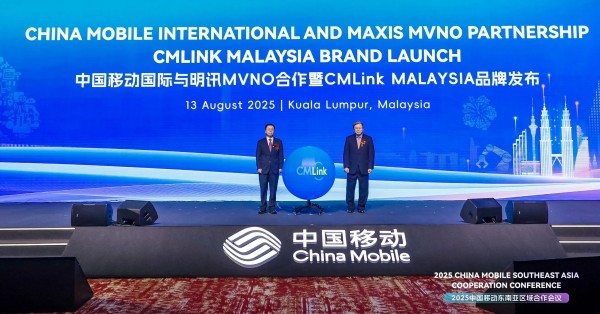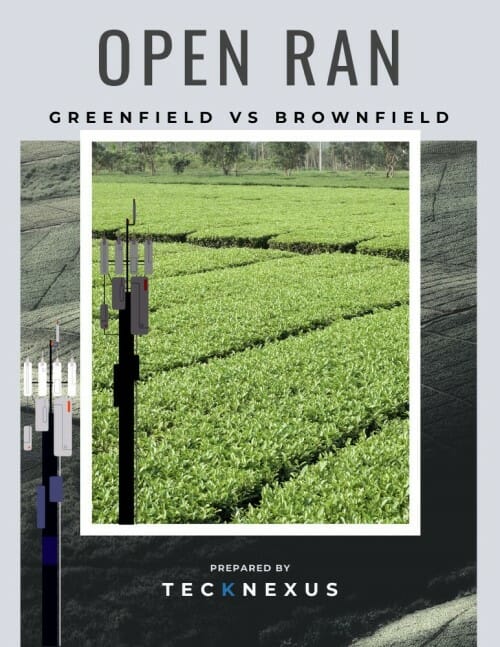Maxis and China Mobile International partner to launch CMLink MVNO in Malaysia
Deal overview and key takeaways
Maxis will host China Mobile Internationals CMLink MVNO in Malaysia, expanding CMIs cross-border mobile footprint and deepening a wholesale partnership focused on 4G/5G services and innovation.
Partnership announcement and market entry
China Mobile International (CMI) has selected Maxis as the host network for CMLink in Malaysia, formalized at the 2025 China Mobile SEA Cooperation Conference in Kuala Lumpur. The move extends CMLinks presence beyond markets such as the UK, Singapore, Japan, Thailand, and Italy, and brings a cross-border, ChinaMalaysia mobile proposition to students, professionals, and frequent travelers. The service rides on Maxis nationwide 4G and 5G coverage, with the telco providing wholesale access, integration, and customer experience support. The partnership builds on a 2024 MoU between the companies to accelerate 5G initiatives and digital services cooperation.
Why it matters for roaming, 5G, and cross-border users
This is a timely play at the intersection of roaming disruption, 5G-based user experience, and cross-border mobility between China and Southeast Asia. For Maxis, it signals an assertive MVNO enablement strategy designed to monetize its network through wholesale while diversifying revenue. For CMI, it deepens regional reach and creates a differentiated ChinaMalaysia offer that can outcompete roaming for specific segments with local pricing, better data experience, and multi-number convenience.
CMLink offer: cross-border features and plans
CMLink is positioned as a cross-border service with features tailored to bi-directional travel and residency between China and Malaysia.
Dual-number (1CMN) SIM/eSIM for China and Malaysia
A flagship capability is 1CMN (one card, multiple numbers), typically powered by multi-IMSI or number-virtualization technology that allows users to maintain local Chinese and Malaysian numbers on a single SIM or eSIM. This simplifies inbound reachability, local verification (OTP/SMS), and domestic call rates without juggling multiple devices or SIMs.
Shared data plans across China–Malaysia corridor
Plans are expected to support pooled or sharable data across both countries, reducing reliance on roaming passes. Using CMIs global backbone and IPX integration, subscribers should see more predictable performance and pricing when moving between the two markets.
4G/5G performance and SLAs on Maxis network
Maxis provides nationwide 4G and growing 5G coverage, with recognized performance in throughput and user experience. While MVNOs typically inherit the hosts RAN capabilities, service parity can vary by SLA and traffic policies; the collaboration suggests a premium wholesale approach aimed at delivering consistent voice (VoLTE) and data performance for CMLink customers.
Market context: roaming disruption and SEA growth
The launch sits within a shifting wholesale and 5G landscape in Malaysia and a broader Southeast Asian push for cross-border mobility solutions.
Roaming disruption and eSIM-driven alternatives
Enterprises and consumers are increasingly substituting conventional roaming with local or regional plans via MVNOs and eSIMs. Cross-border offers that preserve local identities, support app-based onboarding, and deliver predictable costs are gaining traction, especially around education, tourism, e-commerce, and professional services.
Regulatory readiness and MVNO ecosystem
Malaysias telco market supports MVNOs under established licensing and SIM registration rules, with maturing wholesale platforms from incumbents. As 5G coverage expands and device penetration rises, MVNOs that can differentiate on customer experience and cross-border value, rather than raw price, will scale faster.
China–Malaysia corridor growth drivers
Student flows, manufacturing ties, and tourism between China and Malaysia are recovering, creating a sizeable addressable base for dual-market communications. CMIs existing CMLink operations in other countries provide a template for distribution, digital channels, and customer support tuned to Chinese-speaking users abroad, now localized for Malaysia.
Implications for MNOs, MVNOs, and enterprises
The deal underscores how wholesale 5G and cross-border propositions can reshape customer acquisition, retention, and partner strategies.
Maxis: wholesale 5G enablement and monetization
By hosting a global MVNO with a targeted segment strategy, Maxis monetizes network assets beyond retail, improves utilization across 4G/5G, and strengthens its position as Malaysias MVNO enabler. Expect continued investment in API-driven onboarding, eSIM provisioning, analytics-led quality assurance, and differentiated SLAs to attract more partners.
CMI: regional strategy beyond roaming
CMI moves closer to end customers in Malaysia with localized plans, digital onboarding, and multi-number convenience. Over time, this could extend into enterprise offersthink multinational account bundles, staff mobility packages, and IoT travel SIMsleveraging CMIs cloud, CDN, and international backbone assets.
Enterprises: improving employee mobility economics
Multinationals with frequent ChinaMalaysia travel can reduce mobility TCO by replacing roaming with dual-market plans that retain both local numbers. The approach also improves app login flows, 2FA reliability, and local customer support for frontline staff.
Key challenges and execution risks
Execution will hinge on regulatory compliance, user experience parity, and commercial discipline in a competitive MVNO market.
Compliance, security, and user trust
Strict SIM registration, lawful intercept, and data protection obligations apply. Clear data handling practices, transparent tariffs, and localized customer support will be table stakes for adoption at scale, particularly among enterprises and public sector users.
Service parity, QoE, and 5G access
MVNO traffic policies, VoLTE support, 5G access, and network slicing (if introduced later) determine real-world performance. CMLink will need to ensure consistent QoS and rapid issue resolution across borders, backed by strong SLAs with Maxis.
Pricing pressure and channel strategy
Travel eSIMs and ultra-low-cost MVNOs keep price pressure high. CMLinks differentiation must emphasize cross-border identity, localized care, and bundled value rather than competing solely on headline data allowances.
Recommended next steps for businesses
Enterprises, partners, and rivals can take near-term steps to capitalize on or respond to the launch.
Enterprises and SMBs: pilot and integrate
Pilot CMLink for frequent travelers between China and Malaysia, focusing on eSIM activation speed, dual-number usability, VoLTE quality, and total cost versus roaming. Integrate with MDM/UEM tools, verify compliance with corporate policies, and align plans with HR travel patterns.
Retail and travel partners: co-marketing and bundles
Evaluate co-marketing and distribution in universities, airports, and digital channels serving Chinese-speaking customers. Bundle with fintech and super-app ecosystems to streamline onboarding and payments.
Competitors: cross-border offers and analytics
Double down on cross-border propositions, including multi-number offers, app-first eKYC, and contextual customer support. Invest in analytics to segment travelers, students, and expatriates, and explore regional alliances for reciprocal benefits.
Bottom line and strategic takeaway
The MaxisCMI tie-up brings a pragmatic, cross-border MVNO to Malaysia, pairing Maxis network reach with CMIs international footprint and CMLink brand to challenge traditional roaming with dual-market simplicity and 5G-ready performance.
Outlook and next steps
If executed well, CMLink can set a benchmark for cross-border mobile services in Southeast Asia, expanding from consumer mobility into enterprise bundles and catalyzing a more sophisticated MVNO ecosystem anchored on quality, not just price.






























